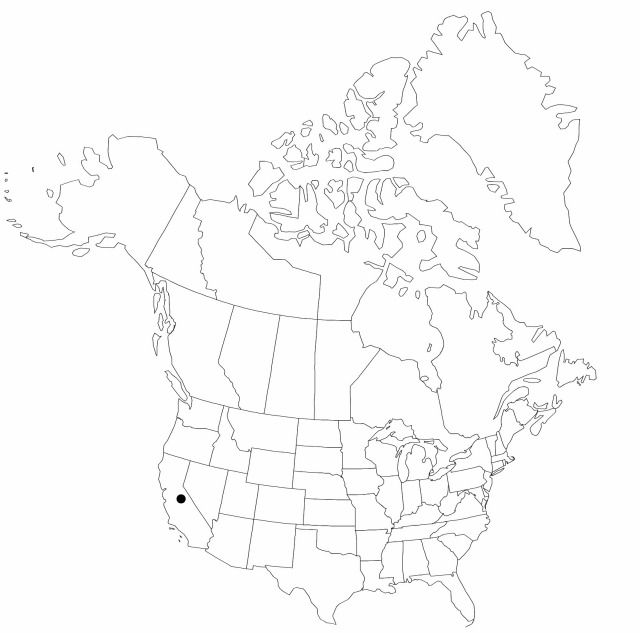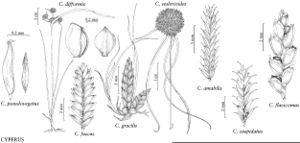Herbs, annual or perennial. Culms weak, often arching, basally culmlike, weakly 4(–5)-angled, 10–30 cm × 0.2–0.4 mm, glabrous. Leaves 1–4, 3–25 cm × 1–1.5 mm. Inflorescences: rays absent, often proliferous; bracts 2–4, longest erect, looking like continuation of culm, V-shaped, 3–6 cm × 1–3 mm. Spikelets 1–3(–6), narrowly ellipsoid, weakly compressed, 5–10 × 2 mm; floral scales 8–16, laterally whitish or dull stramineous, medially green, weakly 3–4-ribbed, broadly ovate, 2.5 × 2 mm, apex acute to mucronate, mucro slightly excurved, 0.2–0.3 mm. Flowers: stamens 3; styles 0.8 mm; stigmas 1–1.3 mm. Achenes brown, stipitate, obovoid, abaxial angle more prominent than adaxial ones, 0.7 × 0.7 mm, apex emarginate, surfaces glabrous.
Phenology: Fruiting summer–early fall.
Habitat: Disturbed, moist areas
Elevation: 0–100 m
Distribution

Introduced; Calif., Australia.
Discussion
Carex gracilis comprises diminutive plants with a delicate, arching habit and distinctive knoblike angles to the achenes.
Selected References
None.
